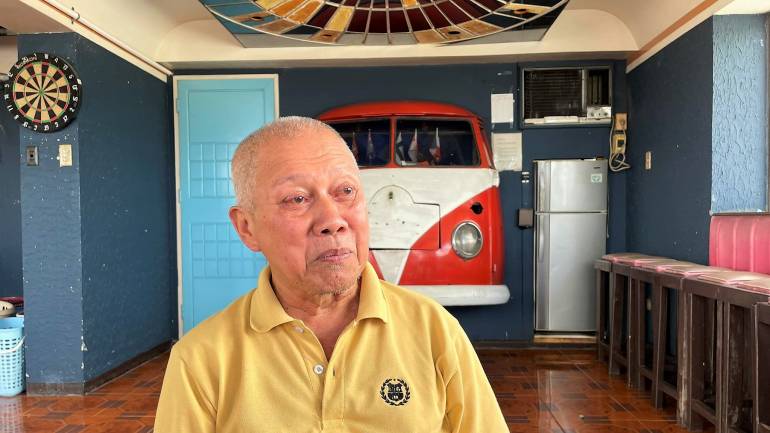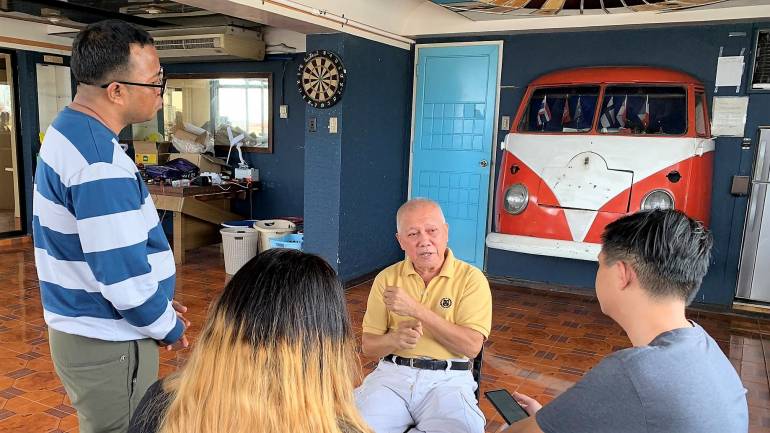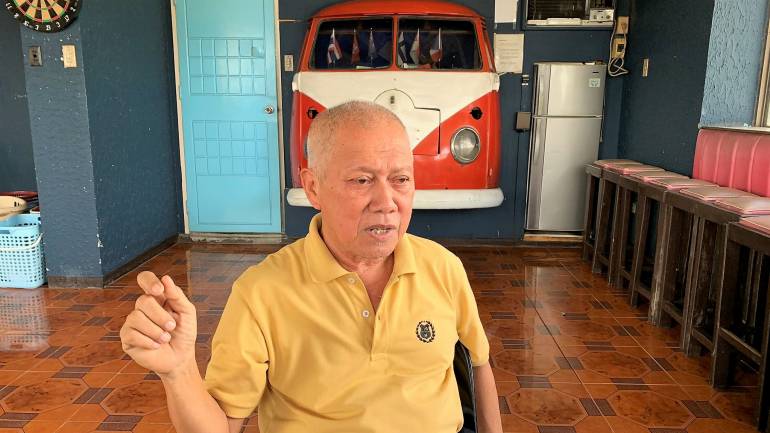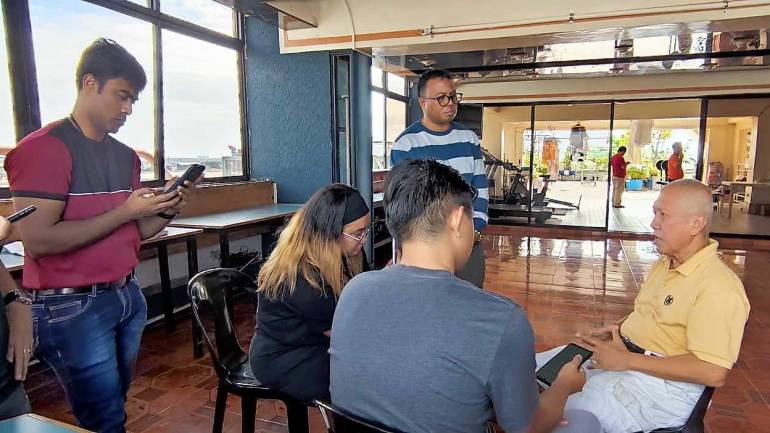How an SVD Brother dedicates his life to ‘the least, the last, and the lost’

“At the back of my mind as a missionary, it is an unwritten mission statement to work with ‘the least, the last and the lost,’”
In the heart of Cebu City, the Philippines’ Queen City of the South, lies a community house of the Society of the Divine Word (SVD). The eight-floor building stands tall in the middle of a busy urban area, serving as a household for clergy and laypeople alike.
Located next to a school and an AM radio station, the SVD community educates the young at the University of San Carlos and spreads the Word of God through the airwaves of Radio Fuerza. On top of these endeavors, they still never forget one of the most important aspects of their missionary work – connecting with and serving the poor.
One of the brothers in this particular community, Bro. Paulino Bongcaras, is actively responding to the call to go out of his comfort zone and dedicate his life to uplifting the most underprivileged groups of society.
“At the back of my mind as a missionary, it is an unwritten mission statement to work with ‘the least, the last and the lost,’” said Bro. Paul.
A part of the SVD community for more than five decades, 77-year-old Paul continues to do the charitable work he has been doing for society’s throwaways. He does not consider old age to be a hindrance but rather a powerful statement of wisdom and courage.
Venturing into the peripheries
Before being based in Cebu, Paul spent most of his time joining the SVD’s jail outreach projects. This opened his eyes to the fact that many of the incarcerated are from poor families, struggling to put food on the table, and misled youth who are pressured into a life of crime. He connected with the juveniles and became their “big brother.”
Paul went on a mission to Papua New Guinea in 1977. After 15 years, the organization assigned him to teach at the University of San Carlos in Cebu. Knowing that his heart is for the people, Paul decided to go out to the streets at night to do something many would not: venture into the peripheries.
“It’s therapeutic to me to help other people,” he said as he recounted the stories of providing counsel, moral support, and resources to beggars, impoverished families, street children, drug users, and people behind bars.
These nightly walks eventually brought Paul to the shining lights of Cebu’s Red Light District, where he found another group of people in need of help.
Delving into a world of exploitation
In the neighborhood of Kamagayan, Paul discovered vibrant nightlife in bars. The establishments were serving alcohol and food on the surface, but behind their doors were prostitutes waiting for customers.
Paul immediately recognized the need to expand his missionary work into this area, where individuals exploit young girls for a quick profit.
“They are there because they need the money, and the money is needed for the education of their children and their own food,” he said.
Since he cannot simply extract prostitutes from their current occupation, Paul turned to the next act of goodwill he could offer to these women: help them avoid sexually transmitted diseases.
In addition to the food and daily resources he offers to people in the streets, Paul also gave condoms and other forms of contraceptives to the prostitutes to help lessen their likelihood of contracting HIV or AIDS.
Even though Paul understands that the Catholic Church frowns upon the use of artificial contraception, he did this not to push prostitutes to have more sex but to provide a loving gesture that someone cares for their well-being despite being considered lowlifes in society.
Power of ‘non-violent communication’
Aside from giving away condoms, Paul wanted to fully understand the lives of prostitutes by talking with them outside of the bright lights of night bars.
Employing an approach he calls “non-violent communication,” he invited the girls to share their stories and open up about the things they needed great help with.
“Preaching is not our style... There is so much preaching being done in our Church... Listening is very important.”
“Preaching is not our style,” Paul explained. “There is so much preaching being done in our Church... Listening is very important.”
He said that this dialogue allowed him to encourage the girls to unleash their authentic selves by focusing less on their weaknesses and more on their strengths.
Furthering the mission is our top priority
Paul never stopped his ministry to prostitutes, but the rapid technological evolution put a huge obstacle to his mission. Bars in Cebu City closed down one by one, and the exploitation of women has transitioned to the vast space of the internet.
Now that his work also calls for a larger scope and overhaul, Paul hopes for more people to join the SVD community and become part of their outreach programs.
At present, Paul has a handful of volunteers assisting him in carrying out his mission, many of whom come from disadvantaged communities themselves.
“They are very effective in connecting with people,” he said. “I learned it by seeing, by reading, and by listening. But they experienced the problem…. They can say, ‘We were in your place before.’”
Paul expressed his desire to train more volunteers to further expand their work and reach out to more underprivileged areas of society, even in the so-called digital peripheries.
Paul’s inspiring work of giving himself to love made him a shining light within the SVD community and the entire city of Cebu. People calling him “big brother” is a sign that he brings out the love of Jesus to others, no matter how challenging or overwhelming the mission can be.











